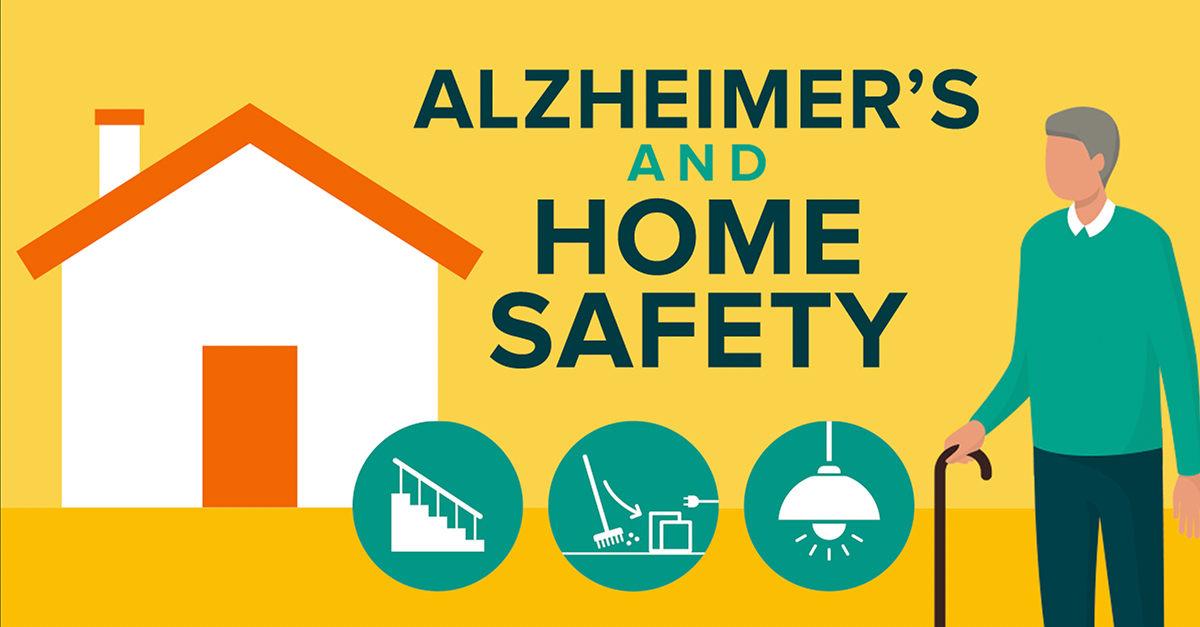Home modifications, like installing grab bars in the shower, are typically necessary for seniors who want to remain in their homes as they age. For those living with Alzheimer’s or another dementia, they’re especially important.
“Because dementia physically changes the brain, reasoning, judgement and decision-making can be seriously impaired. As the disease progresses, a person living with dementia may not be able to recognize common home hazards, or they could use basic household items in dangerous ways,” said Sierra Goetz, operations manager at Tudor Oaks Home Care’s partner, the HomeCare Advocacy Network (HCAN). “However, with a few simple modifications, you can help loved ones living with dementia remain safely in their homes for as long as possible.”
Experts recommend focusing on the following:
Door and Windows
It’s common for a person living with dementia to wander and become confused about their whereabouts. According to the Alzheimer’s Association, 6 in 10 people living with dementia will wander at least once – which poses a serious safely concern. These simple modifications can reduce the risk of wandering:
- Make sure all windows have working locks
- Add childproof doorknob covers
- Install additional locks higher up on doors, so they’re out of the senior’s line of sight
- Install door and window alarms
- Put locks on fence gates
Kitchen
People living with dementia often struggle in the kitchen – forgetting how to safely use common appliances and other kitchen tools. To help prevent accidents:
- Remove medicines from counter tops and keep cleaning supplies in a locked area
- Remove scissors and knives from counter tops and drawers
- Put brightly colored labels on cabinets
- Get a stove with an automatic shut-off feature
- Remove burner knobs or install knob covers
- Install a lock on the oven door
- Add safety latches to doors and cabinets
- Install a faucet with an automatic shut-off feature
- Install a single-lever faucet that can help balance water temperature
Lighting
Bright lighting can help people living with dementia better distinguish different items and avoid falls. Be sure to open curtains and blinds during the day, and add overhead lighting or lamps in darker areas of the home. Place nightlights in hallways, bathrooms and along stairs, to improve safety at night.
Temperature
People living with dementia may not be sensitive to hot and cold. To help them maintain comfortable temperatures in their home:
- Place a safety box over the existing thermostat or install a smart thermostat that can be managed remotely
- Set the temperature on the hot water heater to below 120 degrees to prevent accidental burns
- Remove electric blankets, heating pads and space heaters
Potentially Dangerous Items
Remove or secure any items that could be a potential hazard – gasoline, medications, scissors and any items that a person living with dementia could potentially use as a weapon if they feel scared or threatened.
“Home safety is one of the topics we cover in our Family and Friends Dementia Education training,” Goetzsaid. “The two-hour session, which is free and open to anyone, is designed to help family members and friends understand what to expect with dementia and how they can best care for their loved ones and themselves.”
For more information about the Family and Friends Dementia Education training, visit tudoroakshomecare.com or call 414.525.6402.
